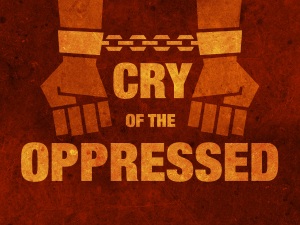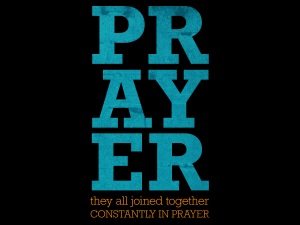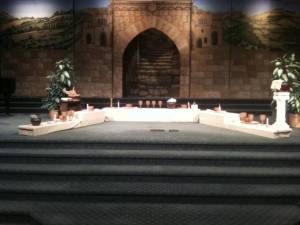Joshua and the fear of falling
 Even though it happened over thirty-five years ago I can still remember the feeling of panic. Looking down the ladder, realizing my brother was no longer steadying it at the base, and then feeling the ladder begin to slide away from the tree. My 30 foot descent wasn’t rapid enough to break any bones, but it really knocked the wind out of me.
Even though it happened over thirty-five years ago I can still remember the feeling of panic. Looking down the ladder, realizing my brother was no longer steadying it at the base, and then feeling the ladder begin to slide away from the tree. My 30 foot descent wasn’t rapid enough to break any bones, but it really knocked the wind out of me.
Although I’ve since forgiven my brother (who was ten years old at the time), that moment still marks my life every time I begin to ascend a ladder.
That feeling of looking down, not seeing my brother there, and feeling my world begin to give way all at the same time.
Perhaps you have been there. As your world started to give way beneath you, you realized you were alone. The person you were counting on to bring stability to your life was nowhere to be found. I think it was that way for the Old Testament leader Joshua (His story is told in the book of Joshua, and his fears are expressed in chapter 1). All his life he had leaned on Moses, but now Moses was dead, and he felt alone. It was in that moment that God spoke to him, and brought these words of encouragement: “I will never leave you, nor forsake you” (Joshua 1:5). It was a promise and it came at the right time.
It is a promise that still brings comfort to us today. No matter how wildly life seems to spin out of control, God will not forsake those who have placed their trust in Him.
Maybe you are there today. The bottom just went out of your life, and when you looked around you found no support from the people you trusted the most.
Can I encourage you? The One who really matters is still there. And He’s still in the business of gently lowering you to the ground when the bottom falls out of your world.









